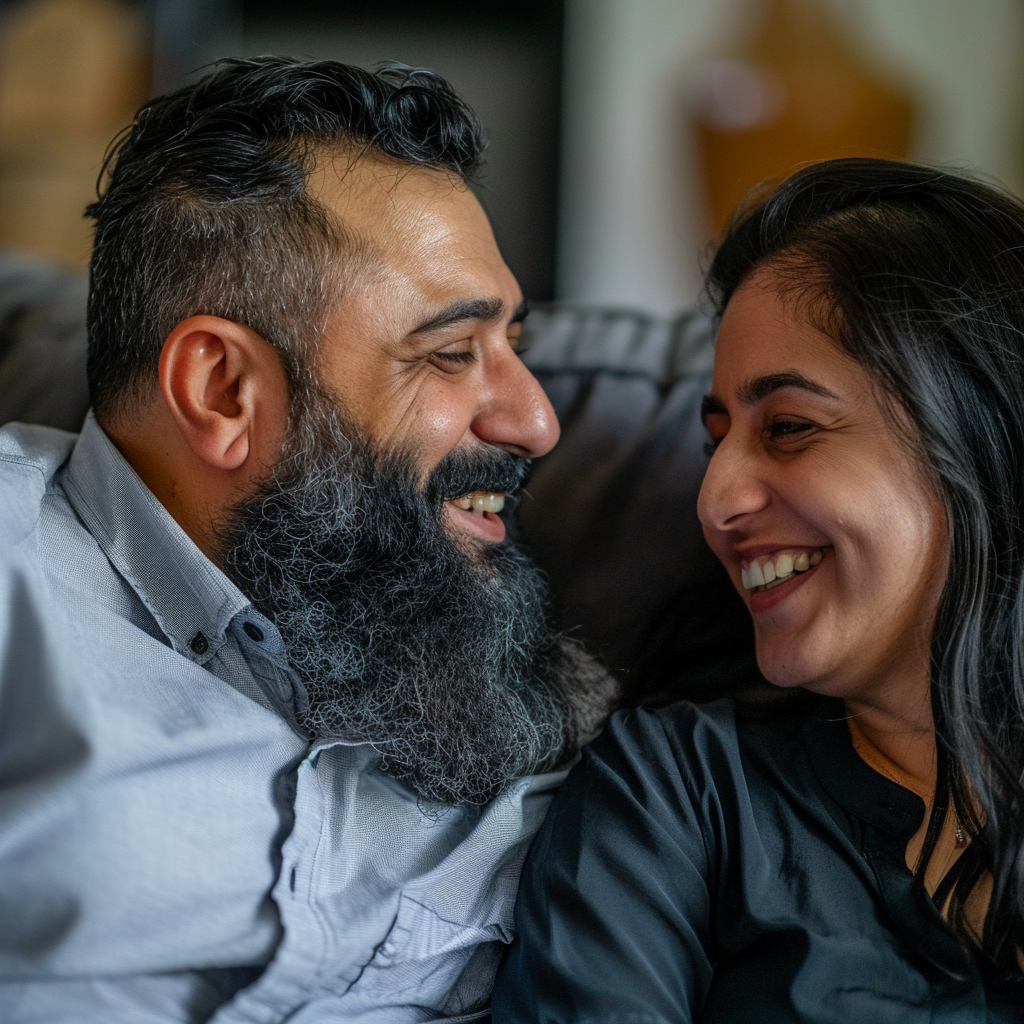Compromise in a Relationship: Unlocking Harmony Together

Relationships require a delicate balancing act, with healthy compromise playing a crucial role. Compromise in a relationship requires hard work to balance one's own desires with those of their partner, whilst striving to maintain harmony.
Compromise isn't just about giving up something to make your partner happy. It's about mutual concession, finding a middle ground where you and your partner feel heard, respected, and valued. It’s about understanding, adapting, and navigating together in a way that honors your personal values and mutual growth.
In this article, we'll explore the art of compromise in a healthy relationship and how it can pave the way for a more harmonious and fulfilling partnership. Let's jump right in!
Understanding Compromise in a Relationship

The mere mention of the term "compromise" often brings a range of responses. Some see it as a necessary part of living harmoniously with another person, while others may fear it means losing their individuality to prioritize their partner's feelings. This misunderstanding or fear often comes from not fully grasping what reasonable compromise in relationships truly entails.
Compromise in relationships isn't about continuous self-sacrifice for the sake of your partner's happiness. It's about being able to find solutions where both partners can communicate any opinion, in a safe space no matter the topic and know it will be considered respectfully. I think of compromise like a pact where both partners agree to adjust and focus on providing each other support throughout life together.
Is compromise really that important in romantic relationships? My answer is a loud YES! Healthy relationships don't just happen, and compromise is an important part of their success. Even small compromises benefit relationships in the long run.
In the coming sections, we will peel back the multiple layers of compromise: the benefits it brings to a relationship and your mental health, the common challenges encountered, ways to overcome them, and even a step-by-step guide to better compromising.
The True Meaning of Compromise

Have you ever been in a situation where you felt like you were losing yourself just to make your partner happy? I see this so often in my consulting room and it can be damaging to your mental health over the long term to continuously put your own needs second to your partner. Habits like this need breaking and take note - this is not compromising.
Compromising occurs when you respect each other's core values, boundaries, and preferences rather than a one-way street of endless sacrifices. Compromising is a form of negotiation where both partners decide to jointly resolve differences, focusing on the strength of the relationship rather than winning an argument. It requires us to abandon the "you vs. me" mindset and embrace an "us against the problem" approach. It’s about dialogues over debates and understanding over insistence.
Compromise means showing empathy towards your partner’s perspective like you would with friends, respectfully expressing any preferences, and collaboratively exploring solutions that cater to both of you. It’s about nurturing a joint decision-making process that values emotional connection over the pursuit of the happiness of one partner.
Compromise is a commitment to communicate and spend time creating solutions that allow love to triumph over conflicts. But how does this all translate into real-life scenarios? And how can it lead to healthier, happier, and more fulfilling relationships?
Bridging Theory and Practice: Case Studies on Compromise in Relationships
Joan and Peter - High School Sweethearts

Meet Joan and Peter. They have been together since high school and now face the challenge of choosing universities. Joan had her heart set on a university known for its arts program, while Peter was drawn to a different university with a strong engineering department. Their choices didn't align, creating tension and the fear of drifting apart.
Instead of letting this issue drive a wedge between them, they had a serious talk and decided that they were both wanting to work towards a future together. They agreed to apply to both universities and visit each campus together. After thoughtful discussions and considering each other's dreams and goals, they made a plan. Joan would attend her desired university for the first two years while Peter would attend a nearby community college and then transfer to his chosen university, which was not far from Joan's.
This arrangement allowed them to stay close and support each other while respecting their individual aspirations. By compromising, they found a solution that honored both of their goals and strengthened their relationship.
Maria and Ali - Difference in Beliefs

Maria, a devout Catholic, and Ali, a practicing Muslim, faced significant conflict in their relationship because of their religious differences. Instead of letting this drive them apart, they chose to find a compromise that would honor both of their faiths.
They decided to learn about each other's religious practices and traditions, attending each other's religious services and celebrations. Maria joined Ali for Ramadan Iftar dinners, and Ali attended Christmas Mass with Maria. They both made an effort to keep an open mind and understand the significance of these events and practices, fostering mutual respect. Sometimes, they would spend some of their free time discussing each other's points of view.
To maintain their individuality, they agreed never expect or pressure each other to convert. Instead, they focused on building a life together that embraced their diverse beliefs. By respecting each other's faiths and finding common ground, Maria and Ali strengthened their bond, demonstrating that love and compromise can bridge even the most profound differences.
These cases illustrate the power of compromise in a relationship. Regardless of the situation, a willingness to meet showcases respect and love that lead to a healthier, happier relationship. Achieving compromise brings positive emotional relief and satisfaction to partnerships.
Steps for Establishing Compromise in Relationships
Step 1: Open the Communication Gates
Encourage honesty in conveying needs, wants, and expectations in the relationship. Foster a non-judgmental environment to freely express feelings.
Step 2: Keep an Open Mind
Embrace empathy to understand your partner's viewpoint. This creates a foundation of respect which is crucial in the compromise process.
Step 3: Identify Common Ground
Find areas of agreement or shared interests. This lays the groundwork for negotiation and stifles feelings of sacrificing one’s needs.
Step 4: Constructive Negotiation
Create an atmosphere of collaboration and open communication, not competition. Both partners should feel that they’re working towards the same goal — a satisfactory solution.
Step 5: Agree on a Solution
The essence of compromise in relationships is finding various ways where both parties' values and well-being can be honored. It may not be a perfect answer but a better alternative that's satisfying for both.
Step 6: Implement and Review
Put your compromise into action. Review the agreed-upon solution periodically to ensure it’s working as intended for both partners or if adjustments are required.
Remember, the point of compromise is not winning or losing. It's about balance and harmony. While this process demands patience and practice, it's an investment with lasting returns for your relationship.
Dive Deeper into Compromise and Other Relationship Matters
"Manage Conflict: The Art of Compromise" on The Gottman Institute: This article discusses strategies for managing conflict and achieving compromise in relationships, based on Dr. John Gottman's extensive research. It includes a helpful exercise to identify flexible and inflexible areas in a conflict.
"Relationship Reset" by Lissy Abrahams: In her book, psychotherapist and relationship expert Lissy Abrahams offers practical, evidence-based tools to help couples understand their communication patterns and overcome obstacles in their relationships.
"Relationships Under the Microscope" on Apple Podcasts: Hosted by psychotherapist and relationship expert Lissy Abrahams, this podcast delves into the complexities of relationships, offering practical advice and strategies to help couples navigate challenges and build stronger connections.
Each of these resources takes a unique approach to discussing compromise in a relationship, providing diverse perspectives that further enhance your understanding of the topic.
Frequently Asked Questions
Q: What does compromise in a relationship mean?
A: Compromise in a relationship means finding a middle ground between differing viewpoints or desires of partners. It involves equally valuing and respecting each other's needs and wants, and finding solutions that satisfy both parties.
Q: Is it healthy to compromise in a relationship?
A: Yes, compromise is healthy and essential in romantic relationships. It helps maintain balance, fosters mutual respect, and improves how you communicate with each other. However, compromising should not lead to loss of self-identity or constant self-sacrifice of one partner.
Q: What are the 4 types of compromise in relationships?
A: The 4 types of compromise are:
-
Distributive Compromise: Involves splitting the difference or finding a midway point.
-
Avoidance Compromise: One party concedes to avoid conflict. This type of compromise can be unhealthy if it becomes a pattern.
-
Integrative Compromise: Seeks a solution that satisfies both parties to the highest degree.
-
Transformative Compromise: Changes the foundational dynamics of the relationship improving its overall health.
Q: How much compromise is okay in a relationship?
A: Compromise in relationships is necessary to thrive, but it should not cause one to lose their self-identity or consistently sacrifice their needs and desires for that of one partner. Each partner should have boundaries and feel satisfied with the outcomes, fostering a balanced and loving environment. The degree of compromise should be agreed upon by both partners, respecting individuality and a sense of togetherness.
Final Reflections
Taking accountability fosters trust, understanding, and stability in relationships. By embracing this trait, you not only improve your relationship dynamics but also promote personal growth.
Ready to transform your relationships through accountability? Check out Fight Less, Love More, an online program by psychotherapist and relationship expert Lissy Abrahams. Start your journey toward happier, more fulfilling relationships today.
Step Towards a Harmonious Relationship: Discover Fight Less, Love More
Join us on a transformative journey of understanding, growth, and improved communication in your relationship. By signing up for Fight Less, Love More, an online program by Lissy Abrahams, you'll gain valuable insights, strategies, and practical knowledge to navigate compromises and foster healthier relationships.




